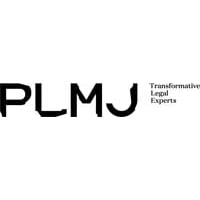

Senior legal counsel | Farfetch



Rita Alves Coelho
Senior legal counsel | Farfetch
Could you tell us a bit about your significant successes in your role?
One of my recent notable successes has been providing comprehensive legal support in various property-related matters. I have successfully negotiated and drafted contracts for commercial leases, ensuring our organisation’s interests are protected and aligned with applicable laws and regulations. After review and negotiation, I have been able to secure favourable lease terms and minimize potential liabilities for Farfetch.
In the area of employment and compliance, I have played a pivotal role in advising and assisting our HR department in navigating complex employment law issues. This includes providing guidance on employment contracts, compliance with labour regulations, and addressing workplace disputes. By ensuring our organisation’s compliance with labour laws and fostering positive employee relations, I have contributed to a harmonious work environment and minimized the risk of legal disputes.
Also, coordinate all the creative operations project’s, included negotiated all the commercial agreements globally with the agency’s models and specials photo shootings that ends up having an impact on the Group’s social media, such as IP, procurement, operations and numerous other areas.
In your opinion, what are the qualities and skills needed to form a strong legal team?
To form a strong legal team with a focus on property matters, operations, finance, HR etc, several key qualities and skills are crucial. Firstly, team members should be well-versed in relevant statutes, regulations, and precedents to provide accurate and effective legal advice.
Strong negotiation and drafting skills are vital when dealing with property matters, payment disputes, and employment contracts. Legal professionals should be adept at identifying favourable terms, mitigating risks, and protecting the organisation’s interests through clear and comprehensive agreements.
Excellent communication and interpersonal skills are vital for working closely with people – and no matter the team we work with. Team members must be able to build strong relationships, effectively communicate legal requirements, and provide guidance on best practices to promote a positive work environment and legal compliance. It is important that they could know our stakeholder and their vision, so that we can adapt the business needs to legal and compliance requirements.
A strong legal team must possess a client-focused approach, being responsive to the needs of the organisation and providing practical solutions that align with business objectives. It is also important to learn to delegate so that the younger members of the team begin to develop their skills, so that they can trust and let the team members be autonomous in their work.
Lastly, we cannot forget that the legal team is made up of people, whether lawyers, paralegal or business assistants, and that it is important to ensure that there is a good balance between their personal and professional lives, also providing support in their professional development to who can also grow within the organization.
What is the biggest risk to your industry and how are you contributing to prepare your organisation for this?
One of the significant risks is that the industry today is the constantly evolving legal landscape. The pandemic was a milestone for any business organisation, especially for Farfetch. The support and speed we had to close offices, adapt offices – especially the creative operations productions that could not close during the pandemic – so that our employees felt safe, the amount of new legislation that was published weekly and learning that was, all company working remotely.
Not employment laws and social security and regulations are subject to frequent changes and updates, making it challenging for organizations to stay compliant. Additionally, the rise of remote work and the gig economy has introduced new legal complexities.
To prepare our organisation for these risks, I actively monitor labour law developments, attend relevant seminars and conferences, and maintain strong connections with industry associations. By staying up to date, I ensure our organization remains compliant with changing labour laws and can proactively adapt our policies and practices. As we are a company with several offices around the world, we try to have a global and uniform approach in all countries, always looking at the local law. To this end, we work at a legal level globally but also with several law firms spread across several countries.
Furthermore, I prioritize ongoing training and education for our Global HR teams (US and EMEA) to enhance their understanding of labour law and emerging trends. This empowers them to make informed decisions and effectively manage employment-related matters within the legal framework.
What challenges have you overcome to get to the position you are in today?
One of the primary challenges is developing expertise in multiple areas. As an in-house lawyer working closely with property matters, people teams, tech, operations and finance, you may have faced the challenge of acquiring expertise in multiple areas of law. Balancing the intricacies of labour law with property law, employment law, contract law, and HR policies mixed with how quickly the business grows can be demanding.
Another can be establishing yourself as a reputable lawyer can be challenging, particularly in a company that is global. Gaining the trust and confidence of the business areas, the EXEC team and colleagues takes time and effort. Overcoming this challenge may have involved building a strong track record of successful cases, cultivating positive relationships within the business areas, live the values of the company (Todos Juntos or Be Human) and consistently delivering high-quality legal services.